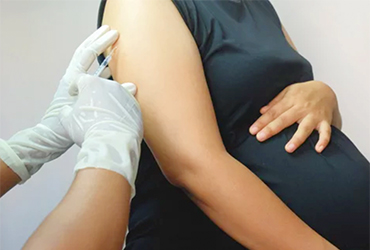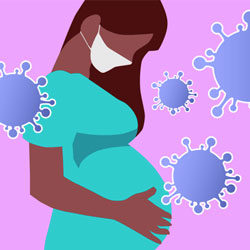By Landon Gray
The FDA has expanded the indication for Adacel (Sanofi) to be administered during the third trimester of pregnancy to improve protection of infants (<2 months of age) from pertussis (https://www.fda.gov/media/164426/download).
Researchers evaluated the effectiveness of Adacel immunization during the third trimester of pregnancy to prevent pertussis in infants younger than 2 months by reanalyzing relevant data from a previous observational study of the effectiveness of Tdap (tetanus toxoid, reduced diphtheria toxoid and acellular pertussis) vaccine in the United States (ClinicalTrials.gov Identifier: NCT05040802). The study matched 179 pertussis cases, reported from 2011 to 2014, in infants at least 2 days old and who were born at 37 weeks gestation or later with 417 controls without pertussis.

To reanalyze the vaccine effectiveness, the researchers fit a conditional logistic regression model, controlling for infant age and maternal education, to data from 101 cases that included five infants whose mothers received Adacel during the third trimester and at least two weeks before delivery, matched by birth hospital with 171 controls. The controls included 27 infants from mothers who received the vaccine also during the third trimester, at least 14 days prior to delivery.
The researchers estimated the vaccine to be 88% effective against pertussis in infants younger than 2 months when administered to mothers during the third trimester and at least two weeks before delivery.
There are two schools of thought for protecting infants, Paul Offit, MD, the director of the Vaccine Education Center and an attending physician in the Division of Infectious Diseases at Children's Hospital of Philadelphia, told Infectious Disease Special Edition. One is cocooning, keeping newborns away from other people to not expose them to potential illnesses. The other is vaccination.
“The most effective way to protect the baby is to have the mother be vaccinated,” Dr. Offit said.
Starting at 32 weeks of pregnancy, mothers will begin to passively transfer antibodies through the bloodstream to their fetus. “But if it's been a while since [the mother has] been vaccinated, then her level of neutralizing antibodies, or antibodies directed against pertussis and the pertussis toxins, will be relatively low,” he explained. “Hence boosting her immunity relatively later in the pregnancy—say beyond 27 weeks—will give her the best chance of having a high titer of antibodies that she can transfer.”
Adacel is a vaccine to prevent tetanus, diphtheria and pertussis that can be given to those from 10 to 64 years of age. In 2019, the FDA first expanded the indication to include repeat vaccination at least eight years following the first vaccination, including during pregnancy, to protect the adolescent or adult. It is the only Tdap vaccine available in a syringe that does not include natural rubber latex. The exclusion of latex may help reduce the risk for an allergic reaction in some patients.
Although it is reasonable to be hesitant about taking a vaccine during pregnancy, Dr. Offit said there is not a cause for any real concern associated with Adacel.
“This is a toxoid vaccine, meaning it's the proteins made by the virus that can be toxic, that are then inactivated. That's what you get [in the vaccine],” he added. “[After that], you will make an antibody response. That’s really what is crossing the placenta—those antibodies, not those inactivated toxins.
“The goal is to try and keep people from dying and to keep them from being seriously infected … not to keep them from being infected,” Dr. Offit said.
Dr. Offit reported no relevant financial disclosures.




